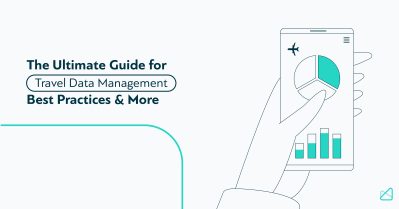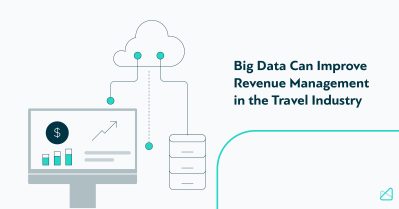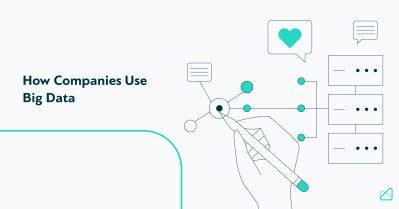Big Data Solutions For The Travel Industry

Unlike some business terminology, big data is exactly what it sounds like. Every airline booking and every hotel stay leaves a data trail stored in conventional databases, but now we are creating vast swathes of digital data on social media, online review sites, search engines and retail platforms.
Smartphones have added to the volume: every text, search, call, email and every photo or video we upload or share is stored, often along with our location. The total global volume of held data is increasing at a mind-boggling rate, doubling every 14 months.
Data is the new gold
No doubt you have heard the saying ‘data is the new gold.’ But just like gold, data needs to be refined and processed if it is to have any value at all.
How can the travel industry make sense of big data? As an OTA, tour operator or wholesaler, you can use big data to learn about your competitors, your own online reputation, improve your revenue management and refine your marketing strategy
The vast volumes of big data publicly available mean that it can only be collected and processed with the help of artificial intelligence. Today you can choose from a range of data analysis companies that offer specific services to the travel industry and typically charge a monthly fee. There are also some more basic tools such as Google Analytics which you can use at no cost.
All this data can help you keep up with prices and establish dynamic packaging that works for your customers.
Learn from your competitors
Data analysis companies typically provide a service via a dashboard where you can view and benchmark your performance against a selection of your competitors. Data from a number of sources (social media, online review sites, search engines, etc.) is aggregated and presented in an easily digestible way under a series of heading such as sentiment, SEO ratings, reviews, prices, and strategy.
The digital revolution has resulted in greater business transparency. Make the most of it. There is a huge amount of information out there about your marketplace and what your competitors are doing and it is all freely available. Remember, you can never really understand your own performance until you have compared it with your competition.
Manage your online reputation
People may be writing about your company and the services you offer on a variety of online platforms and in a number of different languages. If you do not have a mechanism in place to capture this feedback, you will be losing out on free publicity (in the case of positive reviews) or missing the chance to correct a service failure or misunderstanding (in the case of bad reviews).
At a basic level, you can set up a Google Alert to track every time your business is mentioned, although, tracking and responding to online mentions can be hit-and-miss and time-consuming. If your business has reached a size where it becomes clear that monitoring your online reputation manually is no longer practical, then you will need to enlist the services of a data analysis provider.
Typically, your online reputation is logged and tracked along with that of your competitors. But the biggest benefit of such a service is the ability to respond directly to reviews whatever their source all from the same online platform. So instead of having to log-in separately to your Facebook, TrustPilot, and TripAdvisor accounts, all your reviews are gathered in the same place and you can view and respond to them all from the same online dashboard.
Boost your revenue management
Dynamic pricing was created by the airline industry in the mid-1980s under the principle of selling the right product at the right price to the right customer at the right time. Although pricing strategies have evolved considerably since then, this goal remains at the heart of the sales and marketing efforts of all travel agents. In modern times we also use the look to book ratio to keep up with the efficiency of our sales.
The big difference today compared to the 1980s is the increasingly volatile nature of price movements. Let’s take a look at a single example. A customer books a hotel stay on your platform. On average the price of that booking will now change 18 times until it’s time to check-in. For you, it would be hugely beneficial to know the best time to re-book that stay at the optimal price point, resulting in a saving that will go straight to your bottom line. But conventional revenue management techniques are unable to accurately predict when the price will reach its absolute bottom. And here’s where big data can help. Thanks to its unique algorithm based on 23 million hotel rates across the world, Hotelmize can improve margins for travel companies by up to 30% on bookings already made on their platforms. And a further advantage is that this big data solution works behind the scenes with no human intervention required. Last year Hotelmize’s big data technology was applied to 280,000 hotel bookings resulting in total savings of $15m, or an average of $53.57 per booking.
Refine and focus your marketing
Ultimately, receiving intelligent analysis of the digital footprints of your own customers and those of your competitors will allow you to understand your target markets better. This, in turn, will enable you to segment your customers into more detailed sub-groups and focus your marketing efforts accordingly.
Big data can provide predictive analysis of demand based on a range of factors such as historical performance, seasonal attractions and events, weather, public and school holidays. It can also identify new trends in the types of travel bookings made such as solo travel, leisure, and digital nomads.
Big data’s core strength lies is in the ability to adjust prices quickly and competitively in response to a predicted change in travel demand.
Of course, there are limits to big data’s predictive powers. The travel industry is particularly vulnerable to unforeseen shocks such as the current coronavirus outbreak. Big data can help here too, no doubt, hopefully in terms of both positive healthcare and tourism outcomes.
Big data can be an extremely valuable tool but it should never replace or suppress your professionalism in using your own creativity and strategic thinking in order to overcome adversity and increase the profit margin in tourism industry.
Subscribe to
our newsletter
Yay! You are now
subscribed to our
newsletter
Mize is the leading hotel booking optimization solution in the world. With over 170 partners using our fintech products, Mize creates new extra profit for the hotel booking industry using its fully automated proprietary technology and has generated hundreds of millions of dollars in revenue across its suite of products for its partners. Mize was founded in 2016 with its headquarters in Tel Aviv and offices worldwide.
Related Posts

The Ultimate Guide for Travel Data Management: Best Practices & More
14 min. As data becomes increasingly important across verticals, it’s essential to understand its role in the travel industry. Most importantly, understand how to leverage it to make informed business decisions and improve your internal processes and travel experience. After all, data will play a pivotal role in helping the tourism sector’s market volume reach […]

Big Data Can Improve Revenue Management in the Travel Industry
4 min. Big data has become a vital asset in many different industries in recent years. With so many people sharing their information online and platforms logging customer behavior, there’s a need for an efficient way to process all that raw information. The travel industry is no different, as owners and managers are constantly discovering […]

3 Ways How Companies Use Big Data
10 min. “Data is the new soil because, for me, it feels like a fertile, creative medium. Over the years, online, we’ve laid down a huge amount of information and data, and we irrigate it with networks and connectivity.” David Mccandless 2020 statistics reported by bornfight.com show that 90% of the world’s data has been […]
